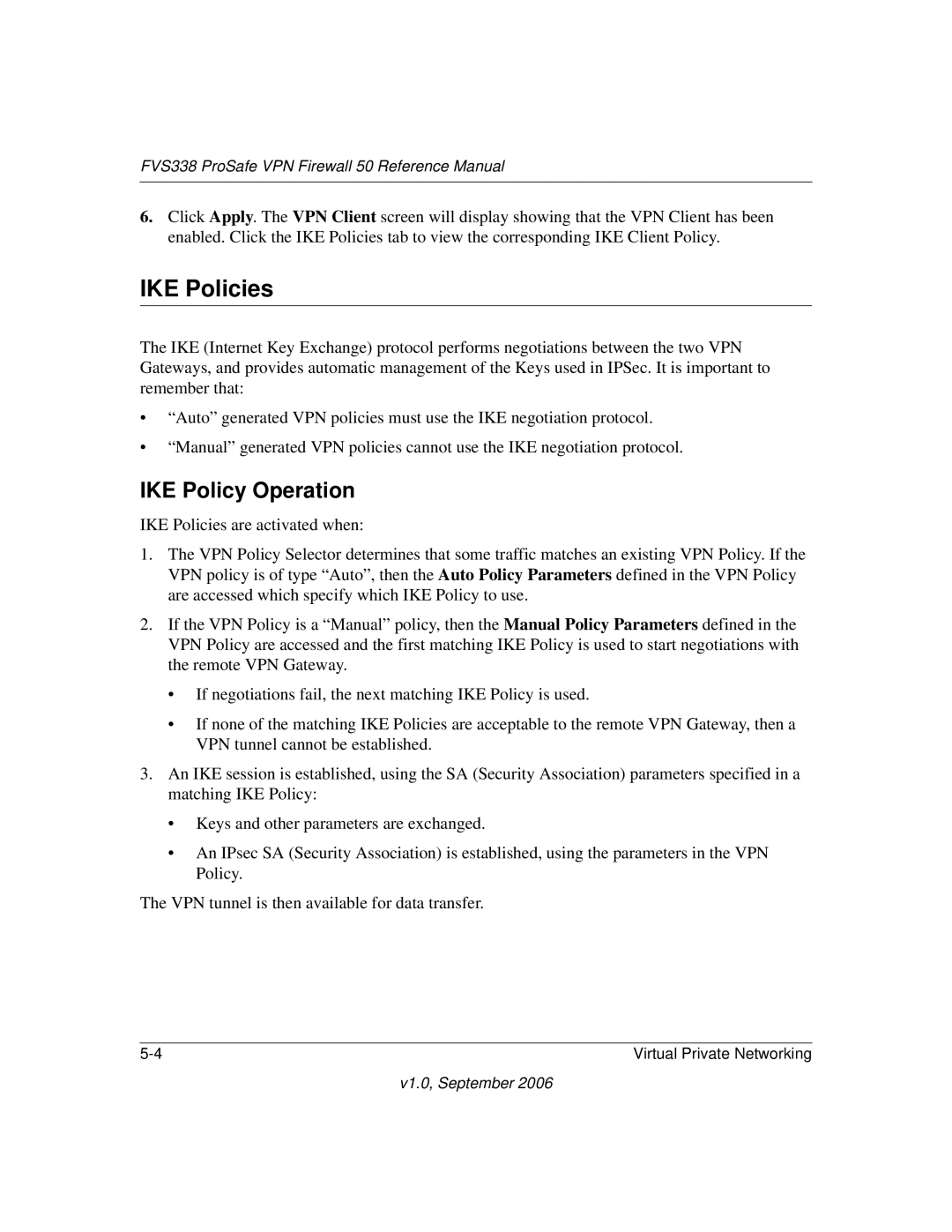
FVS338 ProSafe VPN Firewall 50 Reference Manual
6.Click Apply. The VPN Client screen will display showing that the VPN Client has been enabled. Click the IKE Policies tab to view the corresponding IKE Client Policy.
IKE Policies
The IKE (Internet Key Exchange) protocol performs negotiations between the two VPN Gateways, and provides automatic management of the Keys used in IPSec. It is important to remember that:
•“Auto” generated VPN policies must use the IKE negotiation protocol.
•“Manual” generated VPN policies cannot use the IKE negotiation protocol.
IKE Policy Operation
IKE Policies are activated when:
1.The VPN Policy Selector determines that some traffic matches an existing VPN Policy. If the VPN policy is of type “Auto”, then the Auto Policy Parameters defined in the VPN Policy are accessed which specify which IKE Policy to use.
2.If the VPN Policy is a “Manual” policy, then the Manual Policy Parameters defined in the VPN Policy are accessed and the first matching IKE Policy is used to start negotiations with the remote VPN Gateway.
•If negotiations fail, the next matching IKE Policy is used.
•If none of the matching IKE Policies are acceptable to the remote VPN Gateway, then a VPN tunnel cannot be established.
3.An IKE session is established, using the SA (Security Association) parameters specified in a matching IKE Policy:
•Keys and other parameters are exchanged.
•An IPsec SA (Security Association) is established, using the parameters in the VPN Policy.
The VPN tunnel is then available for data transfer.
Virtual Private Networking |
